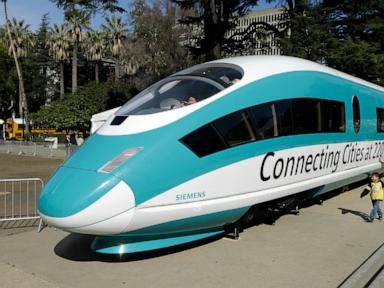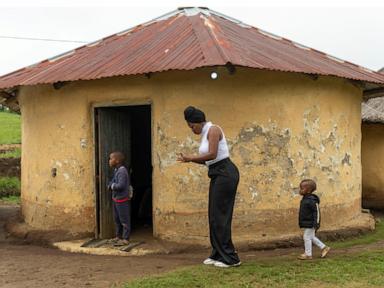Is the Trump administration fighting the wrong economic battle?

One of the most important and high stakes economic debates of recent decades has revolved around the relative importance of skill-biased technological changes vis-à-vis globalization (and the ‘China Shock’) in driving the polarization of the job market and the displacement of many middle-class workers in the U.S.
In the late-1990s and early 2000s, the dominant narrative centered around the notion that breakthroughs in information and communication technology and factory automation augmented the performance of the high-skilled even as they simultaneously diminished the prospects for the mid-skilled workers. Proponents of this view held that skill-biased technological changes led to job polarization and the hollowing out of the middle-class.
Modern economists categorize work tasks as being either cognitive or non-cognitive (manual) on the one hand and as being either routine or non-routine on the other. This allows them to evaluate the degree to which certain tasks are threatened by automation.
While non-cognitive and routine-type tasks (historically, middle-skill jobs) faced significant automation risk, it was widely believed that high-skill jobs involving cognitive and non-routine tasks were secure. Manual and non-routine tasks (often low-paying jobs) were also assumed to be relatively safe — it was either uneconomical or unfeasible to automate such jobs.
The assumption that future high-paying jobs will involve cognitive and non-routine tasks led many public officials and economists to emphasize college education as the primary pathway to success. If technology was skill-biased, then the obvious solution, according to some influential academics, was to boost the overall skillset by raising the formal educational attainment of the American workforce.
Recent trends, however, raise questions about the continuing validity of the hypothesis that there is a race between educational attainment and technological progress and that a sharp increase in the supply of college graduates would help address labor market concerns. Demand for some cognitive tasks and skills may have already peaked. Research suggests that the stagnation in the college wage premium since the early 2000s was likely associated with easing demand for college graduates (resulting from a slowdown in the pace of skill-biased technological changes).
Starting in the early 2010s, a group of economists led by MIT’s David Autor pushed an alternate narrative (the "China Shock" hypothesis) that focused on the rise of China as a global manufacturing superpower and the resultant adverse socio-economic impact on specific sectors and regions in the U.S. that were directly exposed to import competition. This viewpoint also conveniently provided intellectual cover for those who feared the rise of China and the consequences of hyper-globalization.
Globalization’s impact on blue-collar workers (especially in manufacturing) was significant, and the affected regions were hit hard and left behind. Workers displaced from factories often failed to find jobs that offered similar remuneration elsewhere and ended up experiencing a material decline in their quality of life. Recent research indicates that lingering effects of import competition on local labor markets led to a surge in support for nationalistic policies that emphasize trade protectionism and tighter immigration controls.
Politicians, however, may be fighting the last war as the reality on the ground may have already shifted. David Autor himself admitted: “That particular battle has ended. You can say we lost it, or it’s a truce, or that they gained some territory and we held the line, but that battle is over. The nature of competition between [the] U.S. and China has changed since that time. This is now a great power competition around military power, semiconductors, electric cars, energy generation, aircraft and helicopters, telecommunications equipment, and that’s not about jobs...”
Looking ahead, the rise of generative artificial intelligence poses a much bigger challenge for policymakers. Generative AI appears to truly upend prior assumptions regarding the stability of high-skill positions as it can easily and rapidly perform many cognitive and non-routine tasks. Suddenly, white-collar jobs appear vulnerable. Entry-level positions in information technology, law, finance, accounting, marketing and other professional services are already experiencing cutbacks.
Ever since the Luddites smashed textile machinery in early 19th-century England, concerns surrounding technological unemployment have resurfaced with each new wave of disruptive innovation. Technophobes often fall prey to the “lump of labor” fallacy. Thus far, such concerns have proven to be largely unfounded. Neo-luddites often failed to recognize the fact that while new technologies may act as a substitute for certain types of human labor, they also augment the skillset of many workers in ways that enable the creation of new products and services or even entire new industries (which in turn generate vast new array of jobs).
Until now, while some sectors and professions inevitably faced obsolescence (and some workers suffered from labor market displacements) due to technological shifts, there were usually net job gains associated with tech innovations. However, given the nature and scope of generative AI, it is not unreasonable to wonder if this time might indeed be different. While some profess optimism about AI’s potential to help the middle-class, many fear that AI will do to white-collar jobs what automation/globalization did to blue-collar ones.
Several key issues remain unresolved as even experts disagree about the potential nature and scope of the AI revolution. From a policy standpoint, we need to consider what type of skills (the much-maligned humanities may make a comeback) will prove to be valuable in the age of AI. We may need to encourage college students to focus more on attaining foundational training and, as a society, be wary of cognitive offloading and a decline in critical thinking.
Vivekanand Jayakumar, Ph.D., is an associate professor of economics at the University of Tampa.
-

Trump Claims Power to Fire Administrative Law Judges at Will
The Justice Department said a law protecting the officials from arbitrary removal is an unconstitutional intrusion on presidential authority.The New York Times - 6h -

Trump Administration Has Fired Health Inspectors at Some Border Stations
Scientists worry that the losses may open the door to human, plant and animal diseases that would otherwise have been caught.The New York Times - 1d -

Migrants Deported to Panama by Trump Administration Taken to Jungle Camp
The group of unauthorized migrants, which includes children, were bused to the camp late Tuesday night. “It looks like a zoo, there are fenced cages,” said one of the detainees.The New York Times - 1d -
Trump says his administration will check Fort Knox 'to make sure the gold is there'
A drive to audit Fort Knox has gained steam recently from comments by Elon Musk on X.CNBC - 17h -

Trump administration can continue mass firings of federal workers, judge rules
US judge rejects bid by group of labor unions to halt president’s government overhaul through Musk-led ‘Doge’. The Trump administration can for now continue its mass firings of federal employees, ...The Guardian - 11h -
Thousands of IRS employees expected to be fired by Trump administration this week
One month into Trump's new administration, the president is continuing with his efforts to reshape the federal government. More than 6,000 IRS employees are expected to be fired by the end of the ...CBS News - 8h -

Trump administration takes aim at $4B in funding for California high-speed rail
The Trump administration is investigating delays and cost overruns in California’s high-speed rail projectABC News - 8h -

Trump Dismantles Government Fight Against Foreign Influence Operations
Dozens of employees who had been working to fight foreign interference in U.S. elections have been reassigned or forced out, according to current and former officials.The New York Times - 11h -

US politics briefing: Trump administration warns Kyiv and picks up court win in mass firings case
From the Trump administration’s latest moves abroad and in the US – here are the key US politics stories from Thursday at a glance. Thursday saw a judge rule that the Trump administration can ...The Guardian - 7h -

Trump's foreign aid freeze halted a crucial program fighting HIV in Africa. Here's what's at stake
The freeze on U.S. foreign aid ordered by President Donald Trump has effectively halted one of the world's most successful responses to a diseaseABC News - 1d
More from The Hill
-

Live updates: Musk takes the stage at CPAC; Senate vote-a-rama stretches into the night
Tech billionaire Elon Musk took the stage at this year's Conservative Political Action Conference (CPAC) with a late-scheduled appearance that saw him wield a chainsaw and discuss a range of ...The Hill - 5h -

China supports 'recent consensus' between US and Russia on Ukraine war, foreign minister says
China supports “the recent consensus” between the U.S. and Russia on the war in Ukraine, said Wang Yi, the country’s foreign minister, amid ongoing discussions about bringing an end to the nearly ...The Hill - 5h -

Former 'Squad' members launching 'Bowman and Bush' YouTube show
Former Reps. Cori Bush (D-Mo.) and Jamaal Bowman (D-N.Y.) are launching a YouTube show, according to a Thursday post from Bush on her Instagram. “I’m beyond excited to announce the launch of our ...The Hill - 7h -

Trump vows to add Black icons to proposed National Garden of American Heroes
President Trump shared plans to feature more than 10 Black historical figures in his proposed National Garden of American Heroes during a Thursday White House reception for Black History Month. ...The Hill - 7h -

Trump vents frustration with Boeing over Air Force One delays
President Trump is airing grievances with Boeing over delays in delivering new Air Force One jets, telling Republican governors on Thursday he was “getting a little tired” of the hold up. “I bought ...The Hill - 8h
More in Politics
-

Live updates: Musk takes the stage at CPAC; Senate vote-a-rama stretches into the night
Tech billionaire Elon Musk took the stage at this year's Conservative Political Action Conference (CPAC) with a late-scheduled appearance that saw him wield a chainsaw and discuss a range of ...The Hill - 5h -
Georgia Republican faces crowd angered by DOGE layoffs
Rep. Rich McCormick faced a crowd at a town hall in Roswell, Georgia, that expressed anger about the layoffs and cuts implemented by Elon Musk's DOGE team.NBC News - 5h -

China supports 'recent consensus' between US and Russia on Ukraine war, foreign minister says
China supports “the recent consensus” between the U.S. and Russia on the war in Ukraine, said Wang Yi, the country’s foreign minister, amid ongoing discussions about bringing an end to the nearly ...The Hill - 5h -
Senate adopts fallback budget in case Trump’s ‘big, beautiful bill’ falters
Now the onus is on House Republicans to build enough support to advance their own party-line plan, or face pressure to back the Senate’s slimmer vision.Politico - 6h -

Fired Army veteran speaks out about federal layoffs
Army Veteran Nelson Feliz, Sr., who spent more than a decade working for the Department of Veterans Affairs, is speaking out about his experience as one of the many federal workers who was let go ...NBC News - 6h